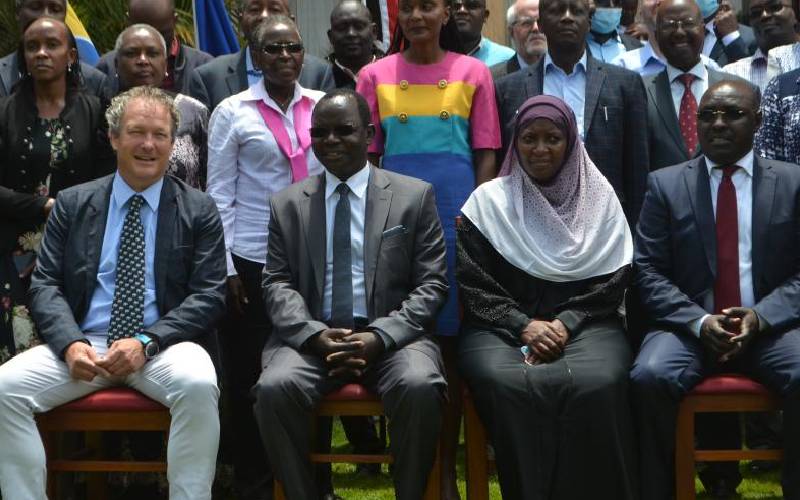×
The Standard e-Paper
Join Thousands Daily

Martin Andersen, the Head of Infrastructure EU, Energy, CoG Transport and Infrastructure Committee Chair John Lonyangapuo with other senior officials in a group photo after the launch. [Phares Mutembei, Standard]
The Ministry of Energy and the European Union have launched a programme to empower counties to meet their energy production provision needs.